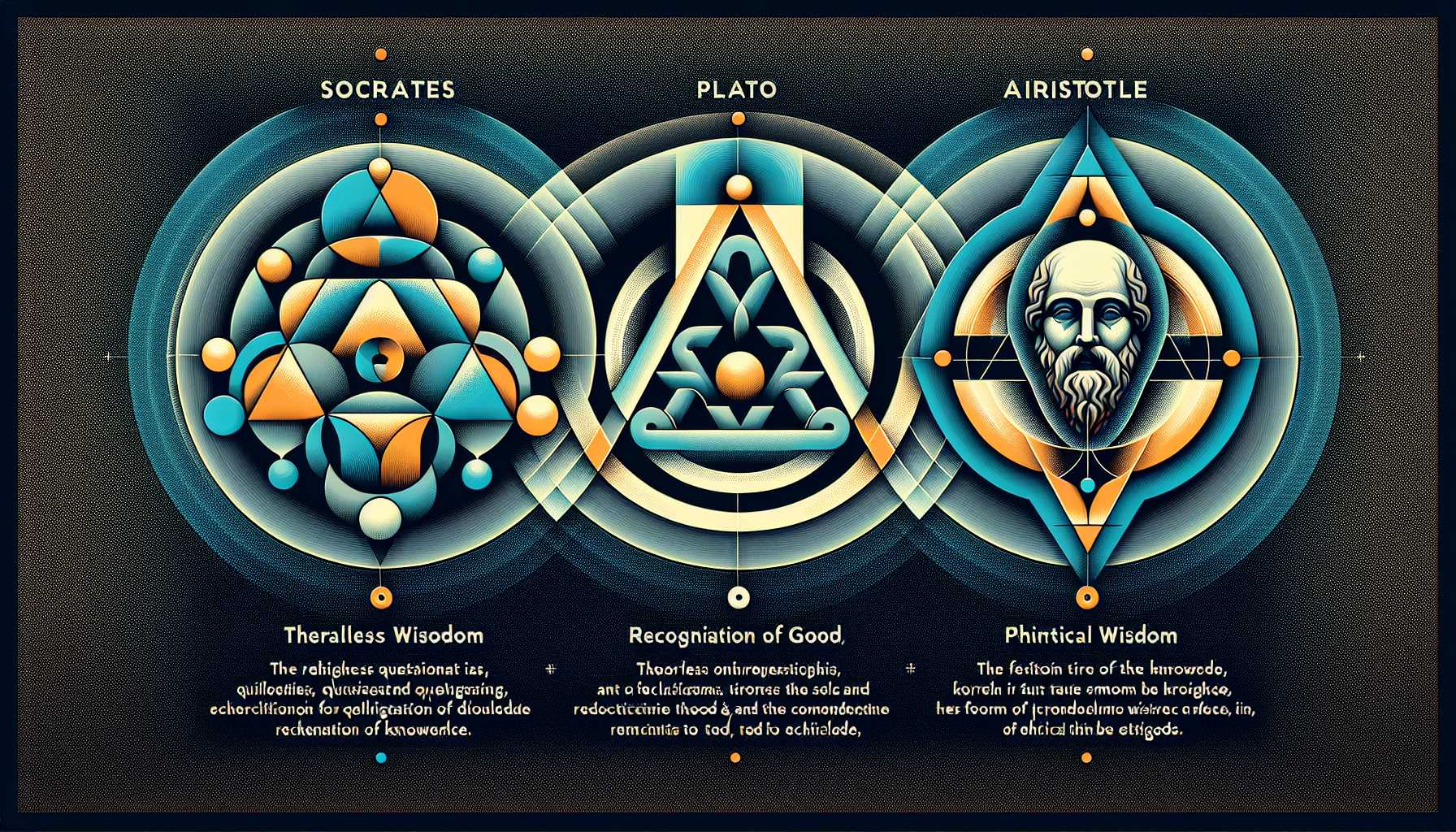
Wisdom Through the Ages Socrates Plato and Aristotles Insights
Socrates is characterized by his approach of relentless questioning and dialogue, emphasizing that true wisdom involves recognizing one’s own ignorance.
Socrate è caratterizzato dal suo approccio di incessante interrogazione e dialogo, enfatizzando che la vera saggezza implica riconoscere la propria ignoranza.
He viewed wisdom as a moral quality, deeply linked to how one lives and interacts with others, famously stating that 'the unexamined life is not worth living.'
Considerava la saggezza come una qualità morale, profondamente legata a come si vive e si interagisce con gli altri, affermando famosamente che 'la vita non esaminata non vale la pena di essere vissuta.'
Plato, a student of Socrates, elaborates on the notion of wisdom in his works, especially in 'The Republic,' where he describes the philosopher-king as the ideal ruler.
Platone, uno studente di Socrate, elabora la nozione di saggezza nelle sue opere, specialmente in 'La Repubblica', dove descrive il filosofo-re come il sovrano ideale.
For Plato, wisdom is an understanding of the Forms, particularly the Form of the Good, and is essential for achieving justice and knowledge.
Per Platone, la saggezza è una comprensione delle Idee, in particolare l'Idea del Bene, ed è essenziale per raggiungere giustizia e conoscenza.
He believed that wisdom has a rational foundation and is connected to a higher truth that transcends the material world.
Credeva che la saggezza avesse una base razionale ed fosse connessa a una verità superiore che trascende il mondo materiale.
Aristotle, Plato's student, provides a more practical view of wisdom, classifying it into two types: theoretical wisdom (sophia) and practical wisdom (phronesis).
Aristotele, allievo di Platone, fornisce una visione più pratica della saggezza, classificandola in due tipi: saggezza teorica (sophia) e saggezza pratica (phronesis).
He emphasizes that wisdom is not just about knowledge, but also about the ability to apply knowledge in practical situations.
Sottolinea che la saggezza non riguarda solo la conoscenza, ma anche la capacità di applicare la conoscenza in situazioni pratiche.
Aristotle sees wisdom as a virtue, closely tied to ethical behavior, suggesting that a wise person is one who makes sound judgments and decisions that lead to a good life.
Aristotele vede la saggezza come una virtù, strettamente legata al comportamento etico, suggerendo che una persona saggia è colei che prende giudizi e decisioni sensati che portano a una buona vita.
Consequently, each philosopher offers unique insights into the nature of wisdom, reflecting their larger philosophical schools of thought.
Di conseguenza, ogni filosofo offre intuizioni uniche sulla natura della saggezza, riflettendo le loro più ampie scuole di pensiero filosofico.
Based on this article
